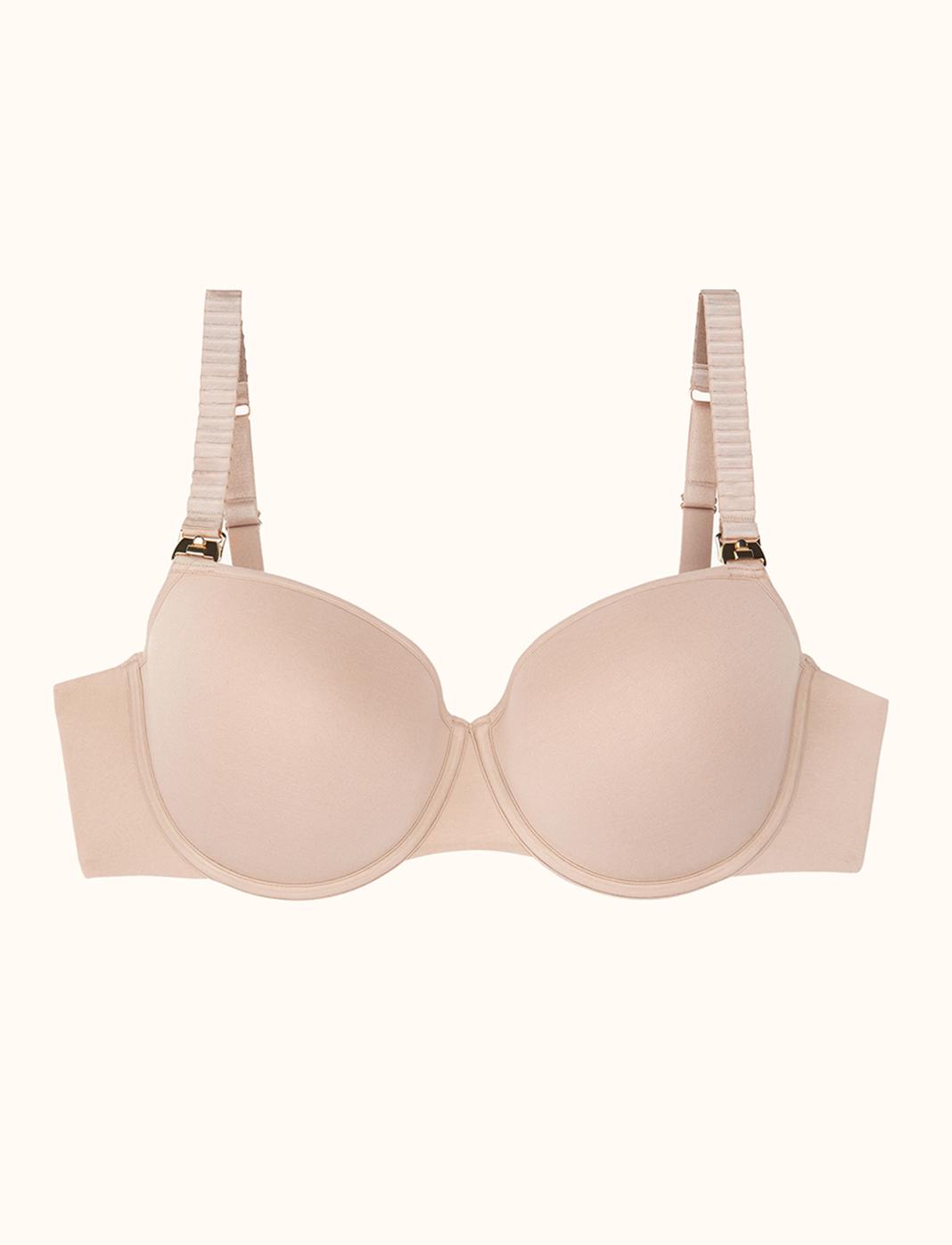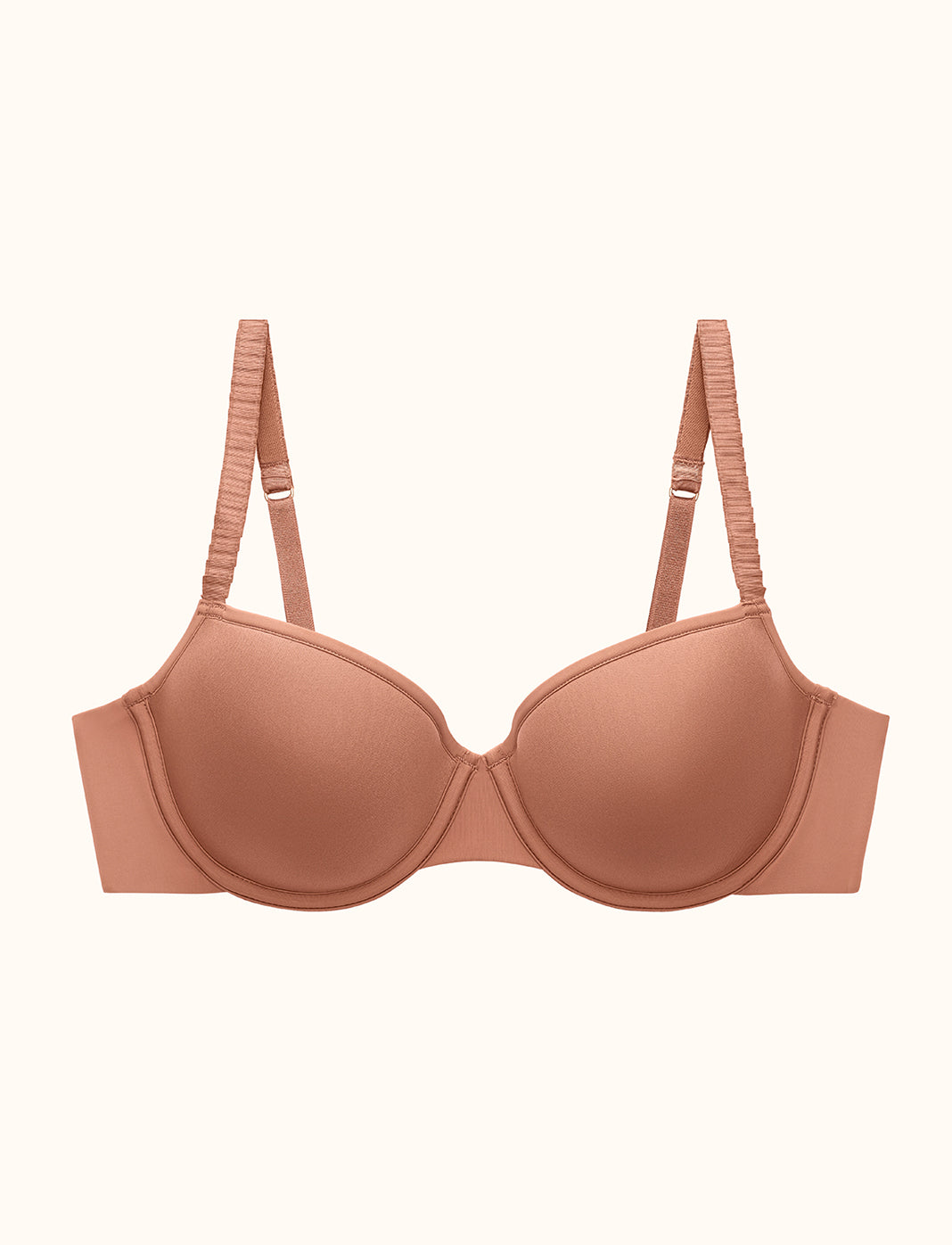Exchanges free for 60 days for all U.S. orders. Please try on the bra to ensure a good fit, making sure to leave the original tags attached. We only accept underwear in unworn condition, with original tags, in its unopened original polybag. Items marked final sale are not eligible for return or exchange. If something’s not right, we can help. Our Fit Experts are available via live chat, or email to answer any questions you might have.
Read moreFounder Friday: Rael Founder Yanghee Paik

As a #ByWomenForWomen company, we love celebrating brands that are led by fellow female founders. Our new series, Founder Friday, is a chance to get to know some of these standout women, including our very own Heidi Zak!
Yanghee Paik was well on her way to a successful career in Hollywood when a friend approached her about starting a new business. As a Harvard MBA grad, she was enjoying her role as a movie distributor for Walt Disney Studios, but had already started to dream of building her own global brand. So she teamed up with her co-founders to start Rael, a line of natural and organic feminine care products that don’t sacrifice comfort or functionality. The cult-favorite brand started in 2017, and starting this weekend will be available in Target stores for the first time. We caught up with Yanghee to learn more about her journey to entrepreneurship and how she unwinds at the end of the day.
Why did you start your company?
I had been a movie distributor at the Walt Disney Studios for 7.5 years when I met my co-founder, Aness. She told me all about the toxic chemical issues in the conventional pads and tampons and shared her idea of creating organic feminine care products that are highly functional. Not that I was looking to start my own business then, but this chat with Aness totally triggered the entrepreneurial spirit that I had deep inside me.
In fact, I was enjoying my job in Hollywood but was getting hungry for new challenges and inspiration in my life and career. Working at a big movie studio was fun, but I wanted to be in a position where I can make decisions and execute them quickly. After discussing the venture with my co-founders, I was 100 percent convinced that there’s nothing more exciting than building something from scratch that could potentially change women’s lives all over the world. I left Disney shortly and jumped into Rael.
24/7® Classic Unlined Minimizer Bra
$78
Save
Tell us about yourself.
I was born in South Korea, but lived in two other continents growing up, which helped me better understand different cultures and become a flexible person. More specifically, my family lived in Paris when I was little, and we lived in both Korea and the US during my grade school years. After working in Korea for a few years after college, I moved to the US alone for business school and have stayed here since then.
After I got my MBA from Harvard, I worked at the Boston Consulting Group in LA office as a management consultant. Then I joined the Walt Disney Studios to pursue my passion in entertainment and focused on digital movie distribution. There I learned the power of a global brand, strong leadership, and execution skills, which are all essential in my current role. I still enjoy entertainment and content, but now I’ve fallen in love with creating a brand for women and working in a very fast-paced environment with a highly motivated team.
What was one challenge you overcame during the early days of your company?
Being my own boss. One of the reasons why I wanted to start my own business was to be able to make decisions myself instead of going through layers of approval processes. However, in the early days, I wasn’t used to not having a boss, who could validate my thought process. It took me a while to be efficient and confident about my decision making, and I guess I’m still learning to be good at it every day.
What are some of the ways entrepreneurs today can help raise and inspire the next generation of women entrepreneurs?
Sharing this kind of stories and interacting with them. I’m also keen on helping minority women as the three Co-founders of Rael are all Asian American women. As our company grows, I wish we can share more inspiring stories someday about how we raised money, pitched to big retailers, and pushed marketing, etc. It is a difficult journey, but we’d like to let everyone know that this can be anyone who has an idea and passion.
Why is it important for entrepreneurs to put time into helping the next generation of women founders?
As female entrepreneurs, we deal with unique challenges such as pitching VCs made of 100% men (who don’t know much about feminine care, in our case) or dealing with work and family balance. A journey as an entrepreneur is difficult and lonely, and having support groups and mentors is really important for the next generation of female founders to succeed. I personally want to see more female-founded companies, who can solve the world’s problems with a creative set of solutions and eyes.
How would you describe yourself in three words?
Flexible, motivated, candid.
What quality do you love most about yourself?
The fact that I’m constantly dreaming about the next thing. When I was a college student in Korea, it was my dream to come out to LA and work in Hollywood. As an adult, I dreamed about starting my own brand that can potentially become a global phenomenon. We’re not there yet, but it inspires me every day that something that seemed impossible can be possible now.
24/7® Classic Wireless Crossover Minimizer Bra
$68
Save
When and where are you happiest?
When I am with my family in Korea as I’m the only person in my family living here. Initially, my parents were not very supportive of me doing a startup, but now they’re my biggest supporters. It gives me a lot of strength when I get emotional support from them and also when I see my niece, who’s my biggest cheerleader.
If you could give your younger self advice, what would you tell her?
Don’t be afraid of changes. I regret that I was not as proactive about taking risks and going for changes when I was comfortable in the big corporate world. Looking back, changes are good, and I learned so much from them. I wish I pushed myself out of my comfort zone more and take more risks.
What’s the top song on your playlist right now?
Shallow by Lady Gaga, Bradley Cooper
What is your motto?
Be bold, be vulnerable.
What are the advantages or benefits of being a founder that many people may not realize or know about?
Meeting so many talented people. It’s amazing how diverse your network can become as a founder. I’ve been lucky to connect with many investors, fellow entrepreneurs, retailers, influencers, and just a lot of highly motivated talent through our interview process.
Why is it important to understand both the challenges and benefits of being a founder?
Being a founder is a difficult journey. It is super rewarding, but at the same time, very lonely and stressful. Knowing that there will be not only the benefits but also huge challenges will help you be prepared for the hardships and stay positive and optimistic when there are moments you want to quit.
Do you think founders should take time to reflect on the pros, even if they’re constantly putting out fires?
Yes, of course. Life as a founder can be insane, but we should take time to reflect on why we started this, how it’s impacting our employees and customers, etc., to stay motivated and positive. This should be the source of our energy when we’re down and stressed out.
Thinking about your time as an entrepreneur, what do you believe is one of the most challenging hurdles women entrepreneurs have to overcome?
I would say staying bold, especially during the fundraising process. We raised a pretty significant amount in Series A in September 2018. We were confident about what we’re building, but of course, there were many sleepless nights when we received negative feedback. I think as women, we’re very sensitive to criticism and tend to be humble, especially when dealing with powerful and experienced business people like VC investors. Yet I learned to filter some of them after a little while to stay positive and confident about what we’re building. It’s important to be a good listener, but sometimes you just need to be bold and believe in yourself.
What are your favorite ways to practice self-care?
I would say facials and Thai massages. In fact, I’m big on skincare, so try to make time to get a facial every 2-3 weeks. If timing doesn’t work out, I would do a mini-facial at home on my own, using a sheet mask. It’s a super relaxing time for me when I can be offline, avoid thinking about work, and just focus on myself.
What’s the most fulfilling part of your job?
I think the most fulfilling part of my job is the impact (whether it’s big or small) we’re making on our customers’ lives. In the early days of Rael, I read each one of our customers’ reviews on Amazon and GetRael.com. There were customers saying they never experienced such a novel, effective product, or sharing that all their skin irritations went away after trying ours. Now we meet real customers from time to time at offline events, and I love hearing their experience and stories. It’s amazing to know that some customers have recognized what we do and enjoy using our products!
Additional reporting by Megan Hernbroth.
Tags:





















